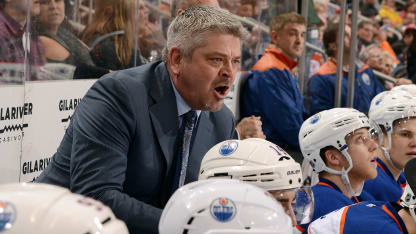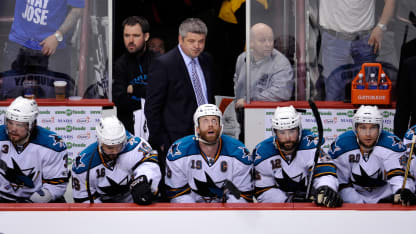McLellan's family history provides some insight into why the 49-year-old held the Oilers to a higher standard.
McLellan's father, Bill, was a member of the Royal Canadian Mounted Police for 38 years. McLellan's brother Trent, 48, spent 24 years with the RCMP.
"I have a big belief that when you're a police rat, which we were, kids of police officers, you tend to be in a very controlled environment," McLellan said. "They have a life of upholding the law and my dad was old-school. He'd make his bed and there were no creases.
"It wasn't a strict environment but it was a detailed one. I found that kids my age that lived in that environment went one way or another. They'd either follow and fall into line with no problem or some others went off the deep end because they couldn't handle the regimen of it every day, the expectations."
McLellan pondered a career in law enforcement, but says he didn't want to follow. "I saw (my dad) do it and I wanted to do something different," he said.
McLellan tried to be a hockey player, and even appeared in five games for the New York Islanders during the 1987-88 season as a 20-year-old. A shoulder injury cost him two seasons, and in 1991-92 he went to Europe to resume playing. His team in the Netherlands fired its coach halfway through the season and brought in Doug McKay, a Canadian, to take over.
"We began to plan practice together and evaluate the team and pre-scout and do tactics and all that type of stuff," McLellan said. "I always liked that part. And he got me really into it and we won a championship."
[RELATED:Oilers-Sharks series coverage]
In the summer, McLellan was preparing to return to Europe to play when he saw an ad in a Saskatoon newspaper. North Battleford of the Saskatchewan Junior Hockey League was looking for a full-time coach.
He interviewed and was offered the job.
"I remember hanging up the phone and my wife said, 'So?'" McLellan said. "I said, 'I got the job and I don't know what the hell I'm doing.' Those were my exact words.
"I was 24 and in the Saskatchewan junior league, you had unlimited 20-year-olds. They were doing some of the things I wanted to do but I had to mature really quickly. I was responsible for that group. That was a quick grow-up year for me."
After two seasons, McLellan moved up to coach Swift Current of the Western Hockey League for six seasons. The Minnesota Wild then hired him to coach their minor-league affiliate in Cleveland, then the one in Houston.
In 2005 he went to work as an assistant to Mike Babcock with the Detroit Red Wings, and in 2008 the upward path continued when he was hired to coach the San Jose Sharks.





